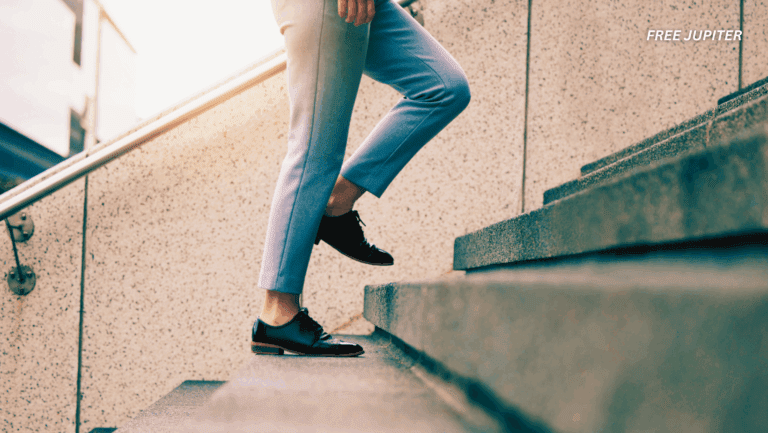Friendly Note: FreeJupiter.com shares general info for curious minds 🌟 Please fact-check all claims—and always check health matters with a professional 💙
Living as an anxious introvert means navigating a world that often feels overwhelming, loud, and unpredictable. It’s a unique blend of personality traits and emotional responses that shape how you interact with people, places, and even your own thoughts. If you find yourself nodding along to many of the following signs, you may be experiencing the subtle, yet impactful, ways anxiety and introversion intertwine.
1. You Habitually Picture the Worst-Case Scenarios
One of the defining features of anxious introverts is the mental habit of envisioning negative outcomes before they happen. This isn’t just cautious thinking-it’s a vivid, sometimes exhausting mental rehearsal of everything that could possibly go wrong. While this might seem like a way to prepare yourself, it often increases stress and anxiety, as the mind fixates on unlikely disasters rather than more balanced possibilities.
2. When Nervous, You Find Yourself Talking More Than Usual
Introverts are typically known for their quiet nature, but anxiety can flip this script. When feeling uneasy, some anxious introverts respond by speaking rapidly or excessively, almost as if trying to fill the silence or distract themselves from their discomfort. This nervous chatter can feel out of character and may leave you wondering why you suddenly became so talkative.
3. Crowds or Social Gatherings Larger Than Two People Trigger Anxiety
Social environments with multiple people can feel overstimulating. For anxious introverts, the noise, the multitude of conversations, and the pressure to engage simultaneously can become overwhelming. This often leads to a preference for intimate settings or one-on-one interactions, where the social demands feel more manageable and less draining.
Read more: What Your Favorite Food Says About Your Personality, According to Psychologists
4. Meeting New People Causes Physical Jitters and Unease
Encountering strangers or new acquaintances can send a ripple of nervous energy through your body. This jitteriness is more than simple shyness-it’s an anxious response to unfamiliar social dynamics and the unpredictability of how interactions will unfold. This can make introductions feel like high-stakes moments rather than casual exchanges.
5. You Tend to Avoid New or Unfamiliar Places
The comfort of routine and familiar surroundings is a sanctuary for anxious introverts. Venturing into unknown environments can provoke feelings of vulnerability and uncertainty. This avoidance isn’t about stubbornness but rather a protective mechanism to reduce anxiety by sticking to what feels safe and predictable.
6. Loud Sounds and Bright Lights Are Particularly Disturbing
Sensitivity to sensory input is common. Environments with loud noises, harsh lighting, or chaotic stimuli can feel intrusive and exhausting. This heightened sensitivity often leads to a desire to retreat to quieter, dimmer spaces where the senses can relax and anxiety can subside.
7. Quiet Moments Don’t Bring Peace-Your Mind Struggles to Calm Down
While solitude is often cherished, it doesn’t always guarantee mental tranquility. An anxious introvert’s mind can be restless, filled with racing thoughts, worries, or mental “to-do” lists. This difficulty in achieving mental stillness can make relaxation elusive, even in the absence of external distractions.
8. Negative Thoughts Tend to Loop Repeatedly in Your Mind
A common experience is the repetition of pessimistic or self-critical thoughts. These mental loops can dominate your focus, making it challenging to shift attention to positive or neutral ideas. This cycle reinforces feelings of anxiety and can contribute to a sense of being trapped in one’s own head.
9. You Become More Reserved and Withdrawn When Around Others
In social settings, anxious introverts may instinctively close off, speaking less or avoiding eye contact. This withdrawal serves as a shield against overstimulation and social pressure. It’s a way to conserve energy and maintain a sense of control amid potentially overwhelming interactions.
Read more: Out-of-Body Experiences Suggest Consciousness Exists Outside the Brain, Scientists Say
10. You Often Endure Difficulties Quietly Without Sharing
Rather than seeking support or voicing struggles, many anxious introverts prefer to suffer in silence. This tendency stems from a combination of self-reliance, fear of judgment, and discomfort with vulnerability. While this can foster resilience, it may also lead to feelings of isolation.
11. Making or Receiving Phone Calls Feels Awkward and Stressful
Phone conversations lack the visual cues and body language that help ease social interactions, making them particularly challenging. The unpredictability of phone calls can heighten anxiety, causing hesitation or avoidance, even when the call is important.
12. You Experience Intense Shyness or Self-Consciousness Around Others
This goes beyond simple timidity. Anxious introverts may feel acutely aware of how they are perceived, worrying about saying the wrong thing or being judged. This heightened self-awareness can inhibit natural expression and increase discomfort in social situations.
13. After Social Interactions, You Replay Conversations Over and Over
Analyzing every detail of past interactions is a common habit. You might find yourself scrutinizing your words, tone, or body language for mistakes or hidden meanings. This overthinking can prolong anxiety and make it harder to move on from social encounters.
14. You Require Significant Alone Time to Recharge and Feel Balanced
Unlike extroverts who gain energy from social engagement, anxious introverts need solitude to replenish their emotional and mental reserves. Without sufficient alone time, feelings of anxiety and exhaustion can intensify, making it harder to function effectively.
15. Unexpected Visitors at Your Home Cause Stress and Discomfort
An unplanned visit disrupts your carefully maintained personal space and routine. For anxious introverts, this intrusion can trigger stress and a strong desire to regain control over their environment. The surprise element often feels invasive rather than welcoming.
Embracing the Anxious Introvert Experience
Recognizing these behaviors is a valuable step toward understanding yourself better. While these traits can sometimes feel like obstacles, they also reflect a thoughtful, sensitive, and deeply introspective nature. Anxious introverts often possess rich inner worlds and a capacity for empathy and insight that can be powerful assets.
Learning to navigate anxiety while honoring your introverted tendencies involves cultivating self-compassion, setting boundaries, and developing strategies to manage overstimulation. Whether it’s through mindfulness practices, structured social interactions, or simply allowing yourself the grace of solitude, there are many ways to create a balanced life that respects your unique temperament.
Read more: These Parrots Were Taught To Make Video Calls—and They Absolutely Love It
If you see yourself in many of these signs, remember that you are not alone. The blend of anxiety and introversion is a shared experience for many, and understanding it can open doors to greater self-awareness and well-being.
This expanded article offers a comprehensive and nuanced look at the behaviors associated with anxious introversion, maintaining journalistic integrity by preserving the original facts while presenting them in a fresh, engaging, and approachable style. If you would like, I can also provide suggestions for coping strategies or further reading on this topic!
Disclaimer: The information in this article is for general informational purposes only and is not medical advice. We are not doctors, and this website is run as a family hobby project. Always consult a qualified healthcare professional before making decisions about your health. Please fact-check any claims and use this content as a starting point, not a substitute for professional guidance.










